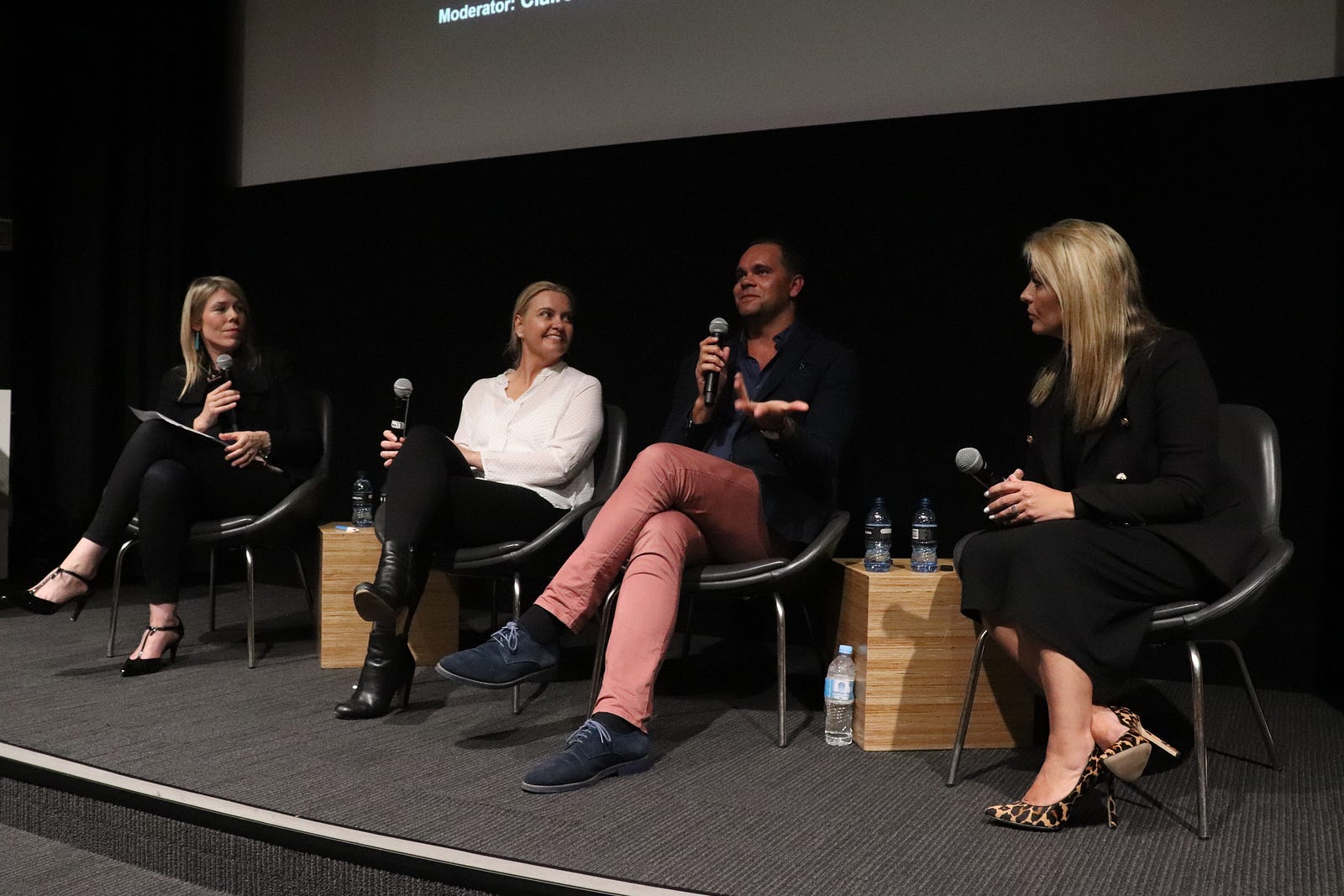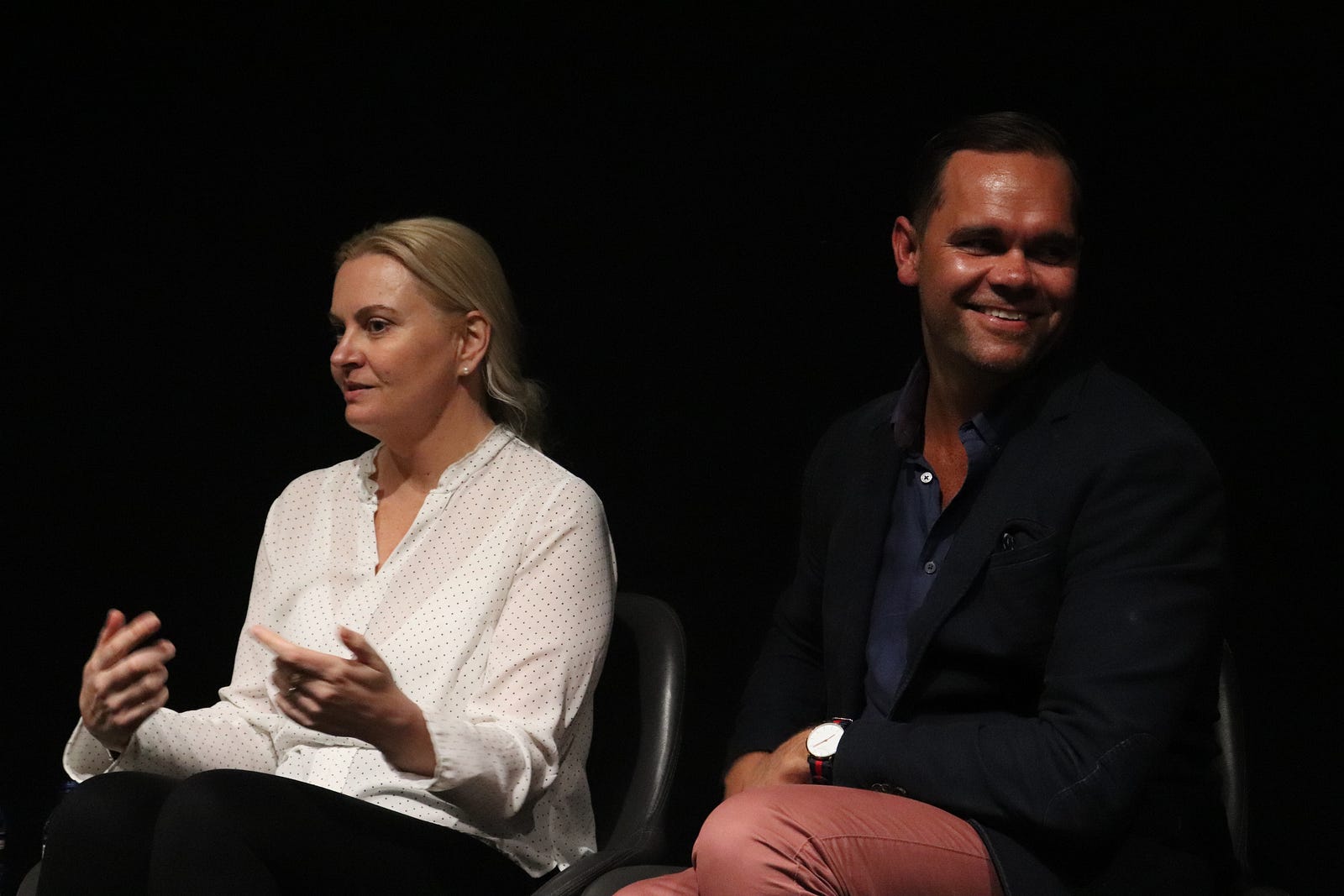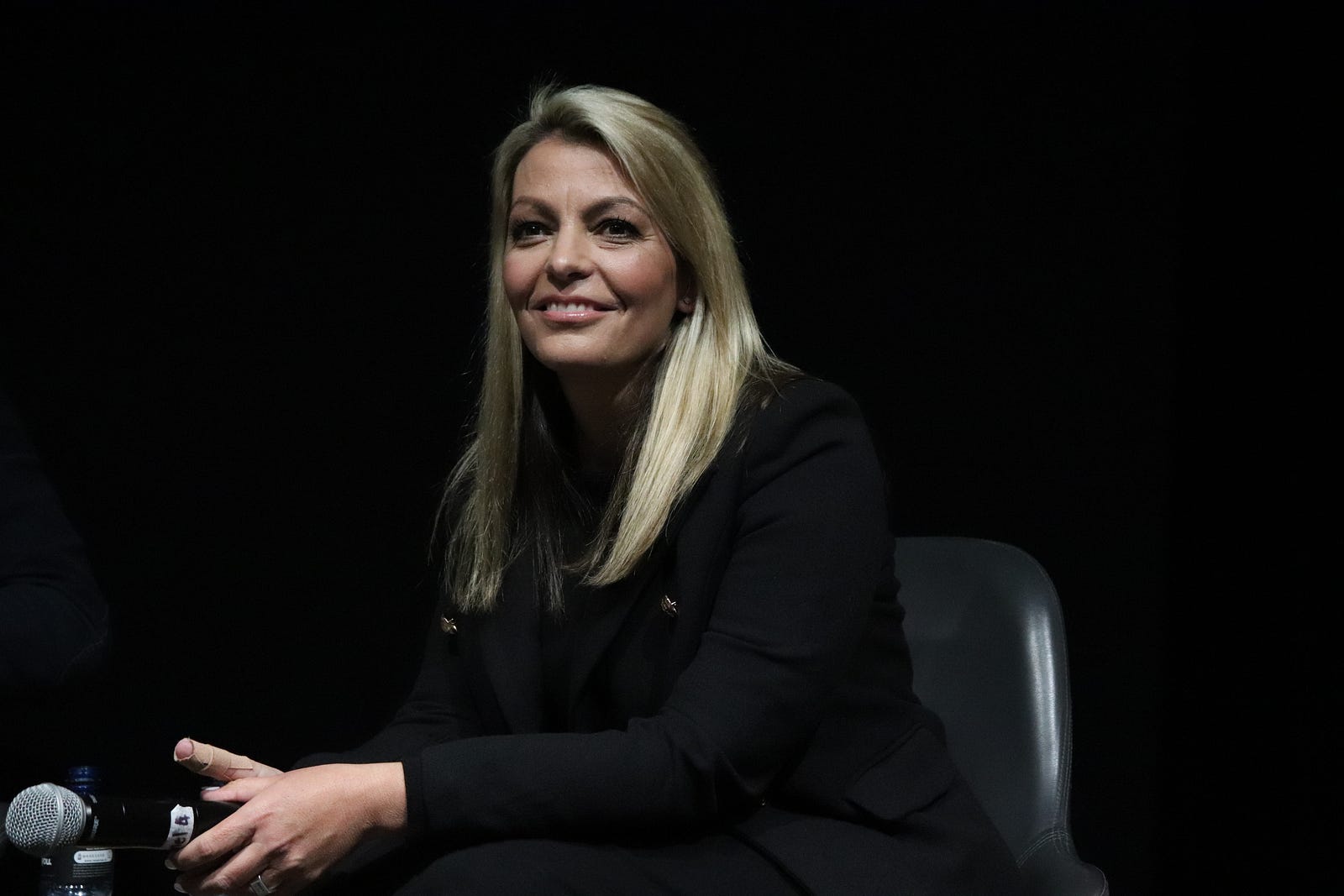Three journalists on the cutting edge of true crime and podcasting discussed empathy, family and investigation at the Storyology Killer Stories: True Crime & Podcast event in Sydney.

You could hear a pin drop as the panel took their seats along with moderator Claire Harvey at Thursday night’s Killer Stories talk. The audience seemed to hold its collective breath as the guests were introduced; a roll-call of inspirational, high-calibre reporters working in an emerging journalistic platform and getting results.
Nicole Hogan is the woman behind Eight Minutes, the Daily Telegraph podcast series that uncovered new evidence in the 16-year-old murder of David Breckenridge.
Allan Clarke’s podcast Blood on the Tracks, part of the ABC’s Unravel True Crime series, is the culmination of five years of investigation into the death of Mark Haines in Tamworth and has sparked renewed investigation by police after almost 30 years.
Mary-Ann Harris’ series for New Idea, New Idea Investigates, delves into a new cold case every episode.
The applause that broke out reflected the popularity and power of each of these series, which have cracked open old cases, compelled audiences and brought forgotten victims back into the public eye.
Harvey prompted the guests to get into the nuts and bolts of what it is that makes podcasting such a popular platform for delving into true crime, and what new challenges it poses.
“There’s a puzzle to be solved,” said Hogan.
“I think that with podcasting the audience kind of feel like they are a part of the investigation.”
For Harris it’s the perfect platform for delivering what all audiences really want.
“At the end of the day they still want a good yarn you know, like we all do,” she said.
Clarke said the unique blend of reporting and narration was what got him hooked.
“I was just so excited by the idea of parlaying journalism with narrative but using really old school journalism techniques,” he said.

But their forays into the new medium were not always smooth sailing; for Clarke and Hogan podcasting happened somewhat by accident.
“When I was talking to the ABC about doing the podcast I was really nervous and reluctant in the beginning,” admitted Clarke, who had no previous radio or podcasting experience.
Hogan agreed: “I never intended this story to become a podcast.”
But that changed after she spoke with the victim’s parents.
“After an hour-and-a-half of talking with both of them, I just felt like they are the very best people to tell the story,” she said.
It’s a subject that sobers each of the panellists. The families of the victims remain at the heart of each podcast, and the driving force behind the effort each one dedicated to their stories.
Clarke spent five years investigating, and concurred that it all came back to the duty he felt to Mark Haines’ family.
“I’ve spent so much time with Mark’s family now they feel like my family,” said Clarke. “Everything was done in consultation with the family.”
Harris says, both for her audience and herself, the podcast has always been about empathy for the families.
“(It’s) hope for the victim’s family,” she said.
“I think that empathy that women do feel for victims’ families has them willing for some sort of resolution.”
Hogan says of the Breckenridge family: “They were really fighting for some answers — it really compelled me to work hard on this, to dig deeper to find some answers and it evolved from there.”
Digging deeper inevitably meant reaching out to police for each panellist. But when the topic of engaging with force came up, a wry smile crept across all their faces.
“Unfortunately it is a very common thread that we aren’t really getting the help from police,” said Harris. “[The victims’ families] are yearning for someone to listen to their story and they’re almost begging for information.”

Hogan and Clarke have both ultimately had their podcasts spark development in the police cases, but say it wasn’t an easy relationship to navigate.
“I mean my relationship with the police has been virtually non-existent up until sort of the last few months,” admitted Clarke, whose investigation uncovered serious flaws in police work on the case at the time.
“The police dropped the ball numerous times in the beginning and I was able to prove that. I felt frustrated, so I couldn’t imagine how the family felt for pretty much 30 years having their concerns fall on deaf ears.”
Hogan similarly had some difficulties accessing sensitive information on the case, and said at the end of the day it was down to her, and all journalists, to do the hard work and find the missing pieces.
“It’s really our job as journalists to try and push as hard as we can and get the proof as well,” she said.

